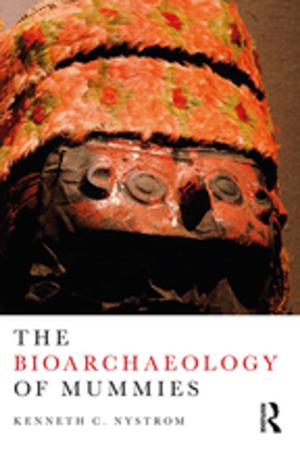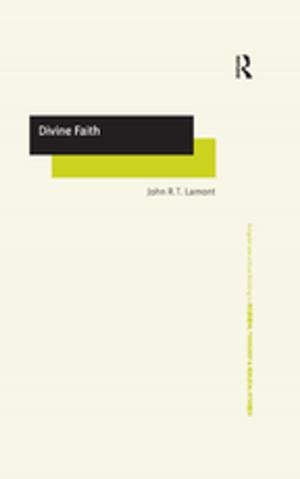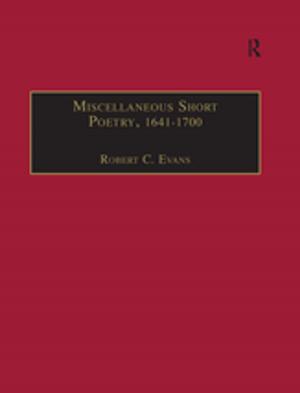| Author: | Pauliina Remes | ISBN: | 9781317492887 |
| Publisher: | Taylor and Francis | Publication: | December 5, 2014 |
| Imprint: | Routledge | Language: | English |
| Author: | Pauliina Remes |
| ISBN: | 9781317492887 |
| Publisher: | Taylor and Francis |
| Publication: | December 5, 2014 |
| Imprint: | Routledge |
| Language: | English |
Although Neoplatonism has long been studied by classicists, until recently most philosophers saw the ideas of Plotinus et al as a lot of religious/magical mumbo-jumbo. Recent work however has provided a new perspective on the philosophical issues in Neoplatonism and Pauliina Remes new introduction to the subject is the first to take account of this fresh research and provides a reassessment of Neoplatonism's philosophical credentials. Covering the Neoplatonic movement from its founder, Plotinus (AD 204-70) to the closure of Plato's Academy in AD 529 Remes explores the ideas of leading Neoplatonists such as Porphyry, lamblichus, Proclus, Simplicius and Damascius as well as less well-known thinkers. Situating their ideas alongside classical Platonism, Stoicism, and the neo-Pythagoreans as well as other intellectual movements of the time such as Gnosticism, Judaism and Christianity, Remes provides a valuable survey for the beginning student and non-specialist.
Although Neoplatonism has long been studied by classicists, until recently most philosophers saw the ideas of Plotinus et al as a lot of religious/magical mumbo-jumbo. Recent work however has provided a new perspective on the philosophical issues in Neoplatonism and Pauliina Remes new introduction to the subject is the first to take account of this fresh research and provides a reassessment of Neoplatonism's philosophical credentials. Covering the Neoplatonic movement from its founder, Plotinus (AD 204-70) to the closure of Plato's Academy in AD 529 Remes explores the ideas of leading Neoplatonists such as Porphyry, lamblichus, Proclus, Simplicius and Damascius as well as less well-known thinkers. Situating their ideas alongside classical Platonism, Stoicism, and the neo-Pythagoreans as well as other intellectual movements of the time such as Gnosticism, Judaism and Christianity, Remes provides a valuable survey for the beginning student and non-specialist.















